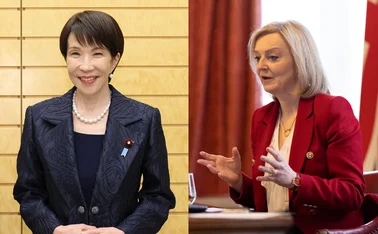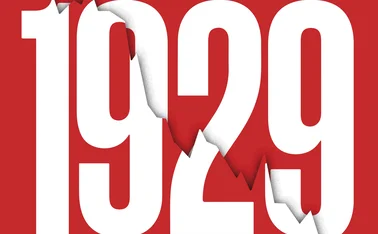
Central banks laying the seeds for ‘crisis in fiat money’, says UK MP Baker

The large-scale extraordinary monetary policy measures being undertaken by the world's major central banks is creating a sovereign bond market bubble that once burst will likely create a crisis in fiat money, according to UK MP and chair of the country's All-Party Parliamentary Group of Economics, Money and Banking, Steve Baker.
The Conservative MP, speaking at an XBRL conference Preparing for CRD IV Reporting in London today, said central banks are doing what only "a few years ago would have been considered most extraordinary", yet today are found as merely "unconventional" in terms of their quantitative easing policies. He specifically named the actions of the Bank of England, the Federal Reserve and the Bank of Japan.
"The risks to the financial system, I would suggest to you are explicitly from central banks and what they are doing," the MP added. "Central banks have blown up the biggest bond market in history."
Statistics from the Financial Stability Board appear to support Baker's assertion. Central banks are now one of the largest participants in the so-called ‘shadow banking' sector, accounting for more than 5% of total financial asset holdings – including banks and other financial intermediaries – in Germany and the US, and more than 30% in Saudi Arabia, according to the Global Shadow Banking Monitoring Report 2012, published in November last year.
Baker argued that the UK has had to debase the value of its currency since the 1970s as its welfare costs have consistently exceeded its tax receipts in all but two years. "The value of money has collapsed," said Baker.
We are approaching a time of profound political crisis, which will be particularly punctuated by a bond market bubble bursting
"We are approaching a time of profound political crisis, which will be particularly punctuated by a bond market bubble bursting," Baker said. "The bond market bubble will burst, as all bubbles do, interest rates will rise, there will then be defaults, high unemployment and, at some point, governments will figure out that they will need to print more money to try to bring interest rates down. That, ultimately, will end up leading to a crisis in fiat money."
Sharon Bowles, British member of the European Parliament (MEP), who chairs the Committee on Economic and Monetary Affairs, also appeared to be concerned about the systemic risk central banks presented to the wider economy. "I have said long ago that the next crisis we will face will be a regulatory crisis," Bowles told the same event in London. "[But now] I think it is a bit of a race because as has been suggested there is a potential central bank one."
Bowles told delegates that she had made proposals for the European Central Bank to have to perform stress tests on its positions in a similar manner to commercial banks. "That didn't go down very well," said Bowles. "But the point is we are in uncharted waters."
The MEP added that this is also the case regarding risks associated with central counterparty (CCP) clearings. However she added that new rules such as CRD IV in Europe will ensure improved capital and a better understanding and improvement in liquidity for financial institutions.
Only users who have a paid subscription or are part of a corporate subscription are able to print or copy content.
To access these options, along with all other subscription benefits, please contact info@centralbanking.com or view our subscription options here: subscriptions.centralbanking.com/subscribe
You are currently unable to print this content. Please contact info@centralbanking.com to find out more.
You are currently unable to copy this content. Please contact info@centralbanking.com to find out more.
Copyright Infopro Digital Limited. All rights reserved.
As outlined in our terms and conditions, https://www.infopro-digital.com/terms-and-conditions/subscriptions/ (point 2.4), printing is limited to a single copy.
If you would like to purchase additional rights please email info@centralbanking.com test test test
Copyright Infopro Digital Limited. All rights reserved.
You may share this content using our article tools. As outlined in our terms and conditions, https://www.infopro-digital.com/terms-and-conditions/subscriptions/ (clause 2.4), an Authorised User may only make one copy of the materials for their own personal use. You must also comply with the restrictions in clause 2.5.
If you would like to purchase additional rights please email info@centralbanking.com test test test








